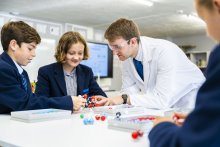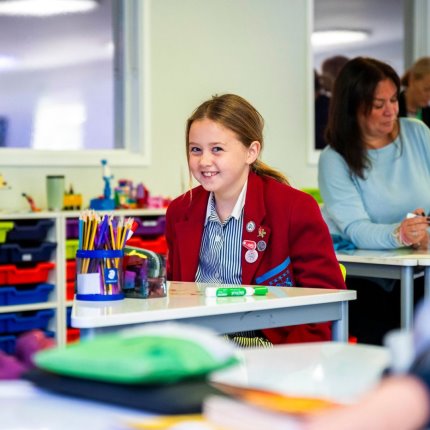
Curiosity may have killed the cat, but it is imperative that it is nurtured and encouraged in young scientists.
Curiosity is the secret ingredient behind discovery, innovation, and a lifelong love of learning. It provides opportunities for children to engage with topics that truly excite them. But curiosity isn’t just a pleasant extra—it is a fundamental skill that enhances learning.
So how can we ensure that curiosity remains at the heart of Science education? The answer lies in scientific enquiry-based learning, an approach that encourages children to think, question, and investigate for themselves.
What is Scientific Curiosity and why is it important?
Children are naturally curious—it’s how they learn about the world. In Science, curiosity is about actively engaging with the world through questioning, investigating, and experimenting.
Scientific curiosity isn’t just about asking “why?” It’s about taking the next step—testing ideas, gathering evidence, and refining understanding. When children engage with Science in this way, they become more than just learners; they become young scientists, eager to explore the unknown. As one enthusiastic Year 2 student put it, “Science is great as it gives you the opportunity to do stuff that no one has ever done before!”
Curious children don’t just learn more—they learn better with children who display high levels of curiosity tending to score better on tests, develop higher intelligence, and retain more information.
Beyond academic achievement, curiosity also drives persistence, creativity, and problem-solving. When children are encouraged to question and explore, they develop critical thinking skills, resilience, and the confidence to tackle complex challenges.
Enquiry-Based Learning
Enquiry-based learning puts children at the centre of their own education. Instead of simply receiving information, they become active participants, formulating questions, designing experiments, and drawing their own conclusions. This approach mirrors the way real scientists work—through observation, hypothesis testing, and analysis.
For enquiry-based learning to be effective, educators (both inside and outside the classroom) must guide students through a structured yet flexible process. This involves:
- Encouraging questioning – Children should be given opportunities to ask their own questions, fostering critical thinking and ownership of learning.
- Facilitating hands-on investigations – Engaging experiments allow children to test their ideas, collect data, and develop practical scientific skills.
- Promoting discussion and reflection – Learning is enriched when children analyse results, challenge each other’s ideas, and reflect on their findings.
- Using visual prompts and real-world problems – Thought-provoking images, real-life challenges, and interactive resources can help ignite curiosity and exploration.
Final Thoughts
Curiosity is the fuel that drives scientific discovery. By embracing enquiry-based learning, educators can ensure that children develop not only strong scientific knowledge but also the critical thinking skills needed to navigate the world with confidence. Science should be an adventure—one where children feel inspired to ask big questions, test bold ideas, and make exciting discoveries.
Indeed, Albert Einstein himself said, “I have no special talent, only that I am passionately curious.”
Tom Rady
Science Teacher




%20(1).jpg?command_1=resize&width_1=430&height_1=430)







